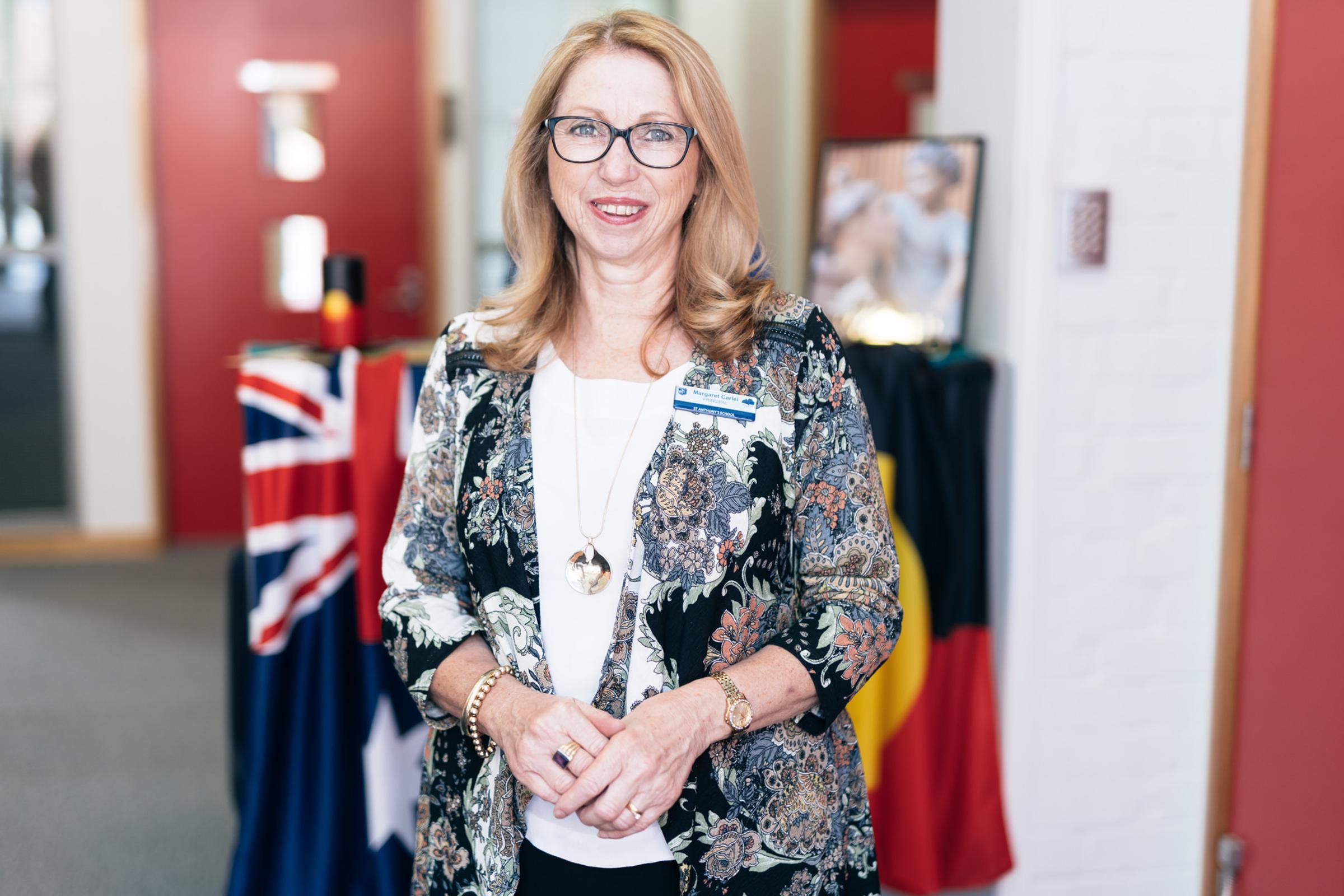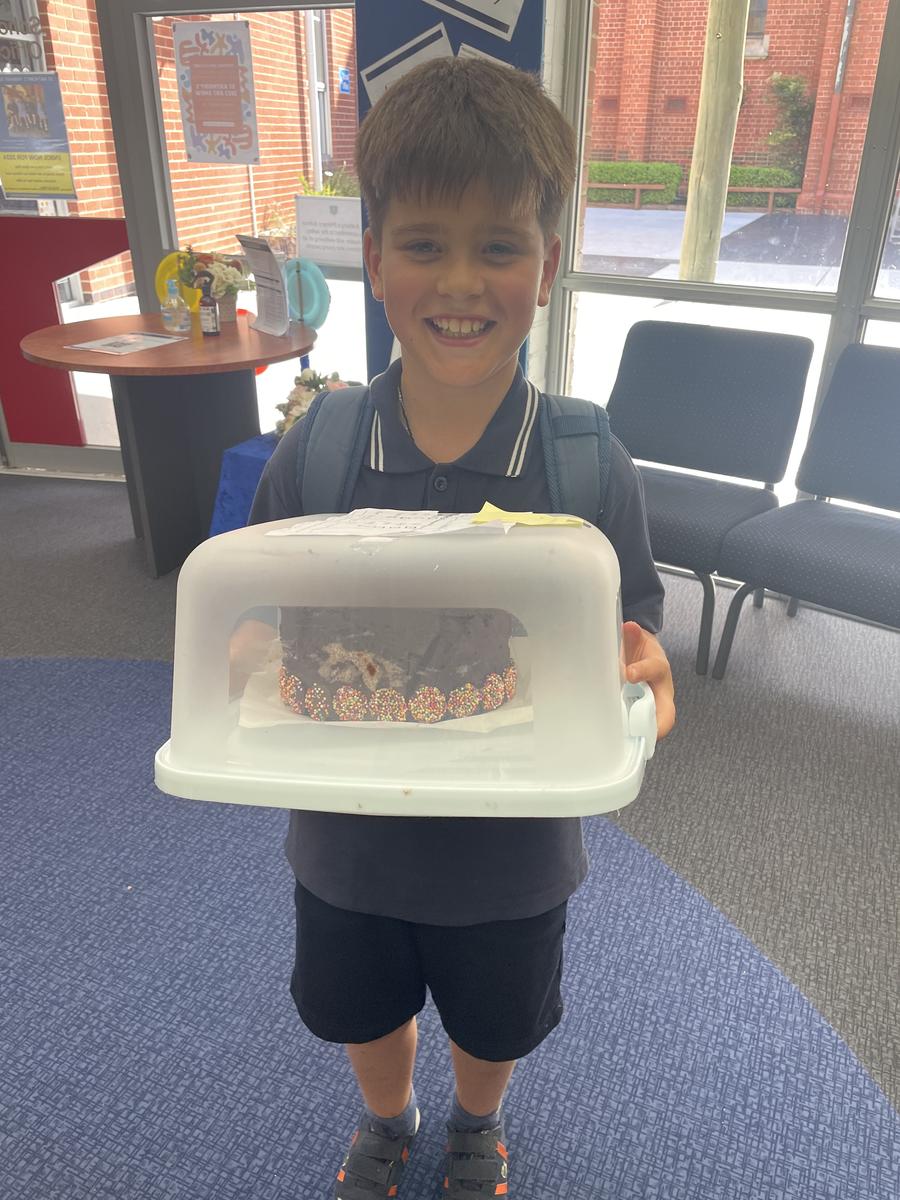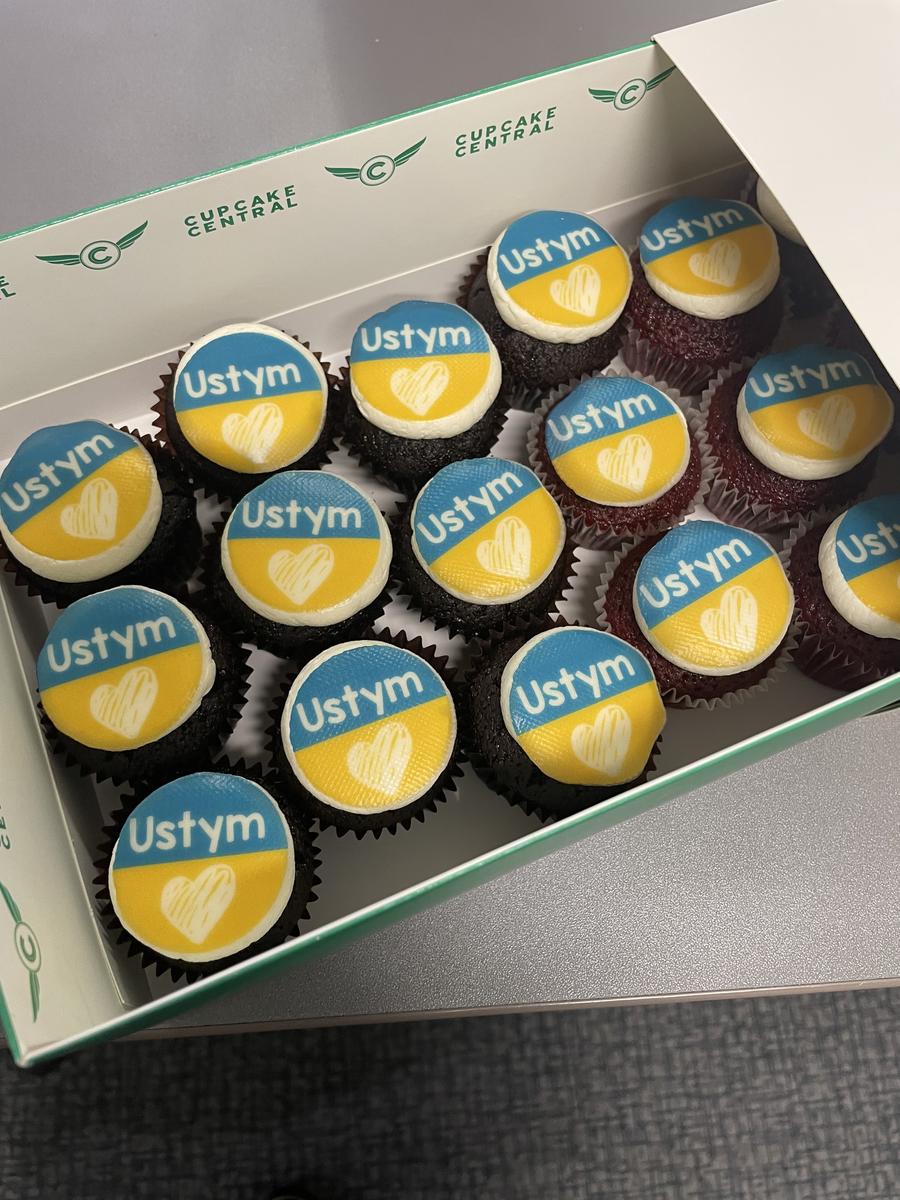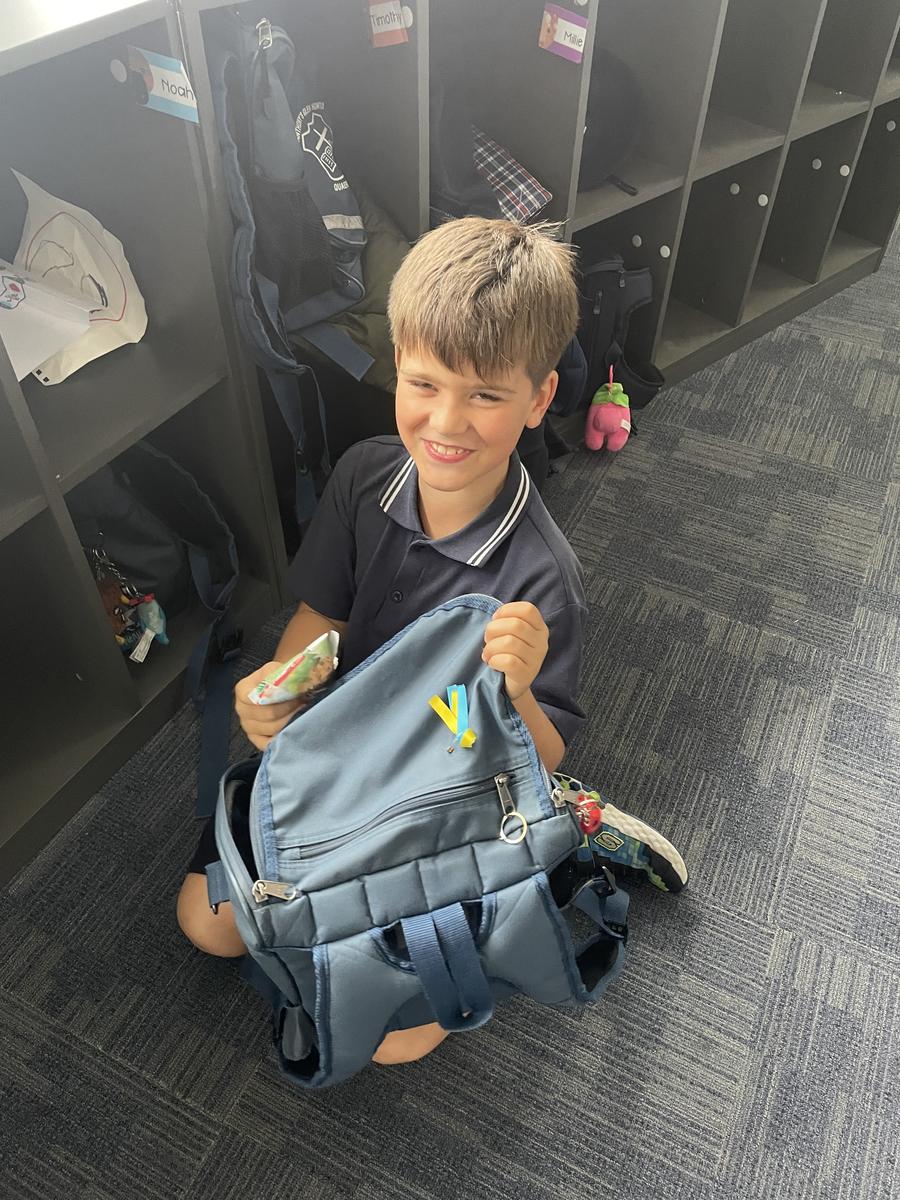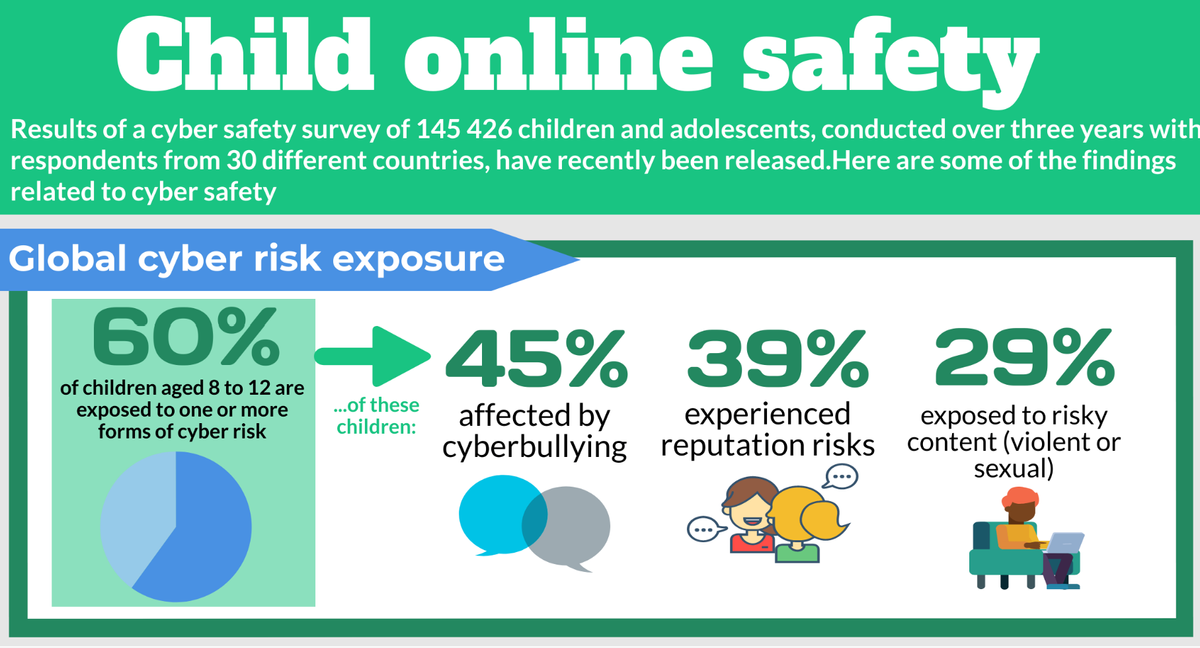Dear Families
Renovated Toilets
Hopefully the students have let you know that the toilet walls were painted with the girls' toilet having the lights and flooring ungraded also.
Farewell Ustym
It is with sadness but with great pride that we farewell Ustym in Year 2 and his mother, Uliana, who are returning to Ukrain this weekend. The time that they have spent with us has enabled me to appreciate their beautiful and yet humble personalities. They have embraced our school and culture with great eagerness and enthusiasm. They quickly settled into the new way of living in a community who welcomed them and stood by them at their time of turmoil in their mother land. They both have shared their stories, newly made experiences and their love for the more simple things in life.
The main thing that I take away from the time that they both spent with us is that no-one should take life for granted and that our school community, beginning with our beautiful children, embrace the diversity within our school.
Ustym and Uliana, on behalf of our school, I wish you a safe return back home and hope that the many memories of our school are shared with your family back home. May God take you safely under His wings and keep you safe.
Devices at home
It was recently brought to some of our staff's attention that children at home are on devices for long lengths of time. Some children have their own TV, iPad devices, gaming consoles and mobiles in their own bedrooms. They have even been innocent enough to tell us that they trick their parents into believing that they are asleep only to go back to using their devise or games unbeknown to their sleeping families.
In this ever changing world of technology and social media it is important that parents are aware of the pivotal role they play in ensuring the safety of their children. At the moment when there is so much happening in our world, parents are recommended to closely monitor and even delete social media apps which show the devastation that is currently happening.
One psychologist has noted that the impact on our young children can be quite devastating and the effects long term.
Below is an article that is promoted by the eSafety Commissioner of Victoria in alerting parents to the impact of technology on children of any ages when not monitored.
I encourage you to have a read through the various articles so that you know how you can protect your children while using technology in a positive way.
https://www.esafety.gov.au/parents/resources#information-sheets
A research report by the Gonski Institute for Education at UNSW Sydney released today reveals digital media and technologies as a great distraction in Australian family life. More than nine out of ten parents think digital devices negatively distract their own lives, and 83% think their children are also negatively distracted by digital gadgets.
While parents find digital technologies useful in staying connected with their children and keeping them safe, three-quarters of parents think it is difficult to control their child’s digital habits. As many as 65% of parents also admit that negotiating the use of digital media and technologies at home causes conflicts with their children.
“Parents think that digital media and technologies have a dual power of offering children both benefits and drawbacks,” says Professor Pasi Sahlberg, Deputy Director of the Gonski Institute for Education. “Hence, we need smart solutions to address these complex challenges towards sustainable digital wellness for our youth.”
Prof. Sahlberg says perhaps the most worrying finding is that about a third of families allow their children to use their digital devices after bedtime every single day. Furthermore, three of five children who struggle in school regularly sleep with their digital gadgets.
“Although our study is not able to prove that night-time use of smartphone or computer causes difficulties to keep up good learning at school, parents should help their children to fall asleep without technology”, Professor Sahlberg says.
According to earlier findings, two-thirds of Australian teachers observed more children arriving at school tired and often not ready to learn.
Growing up digital is also becoming an equity issue. According to the study, lower-income parents and lower-achieving students, in particular, are most at risk of distraction from interactive media use.
“This group of parents is less likely to implement effective monitoring and regulation strategies at home around the use of screens,” says Dr Amy Graham, Research Fellow at the Gonski Institute. “They’re also more likely to believe these devices are having no impact on child development.”
About half of parents surveyed say they would welcome more support from their child’s school to help them and their child to manage digital media and technologies use at home.
“Parents know they need to be role models in the safe and responsible use of digital devices at home, but they still find themselves negatively distracted by digital media and technologies,” says Dr Graham.
The study is also one of the first efforts to include grandparents’ views of their own and their grandchildren's’ digital media habits. Almost four in five grandparents feel they are in control of their own digital technology use, and most would rather see their grandchildren play sports than video games.
“These are not issues facing only schools or parents – we are all in this together. There are real opportunities for schools and parents to have better conversations about these challenges, but they need support to do this,” Dr Graham says.
Growing Up Digital Australia is part of an international research project, including Harvard Medical School (U.S.) and Alberta Teachers Association (Canada), investigating how digital media and technologies impact children’s wellbeing, health, and eventually learning at school. The report surveyed nearly 2,500 parents, grandparents and caregivers and collected data about more than 5,000 children across Australia on home use of digital devices by young people during the pandemic.
The final phase of the research will begin later this year and will capture the views of young people on their use of digital media and technologies.
Key facts:
- More than four in five children own at least one screen-based device that belongs to them, and children own, on average, three digital devices at home. Personal ownership of gadgets starts as young as four years old.
- Only 46% of parents felt that their child spends a day without digital technology.
- 73% of parents and grandparents think it is harder to control their child’s digital habits since getting their own screen-based device.
- 65% of parents agreed that ‘negotiating digital technologies use causes conflicts in our home’.
- 83% of parents, carers and grandparents felt that their child was negatively distracted by digital technologies.
- Half of parents said that they would welcome more support from their child’s school to help them and their child to manage digital media and technologies use at home.
The full article with further information for parents can be found by using the following link.
https://www.gie.unsw.edu.au/children-more-distracted-digital-devices-home-parents-say
Sincerely
Margaret Carlei
Principal

